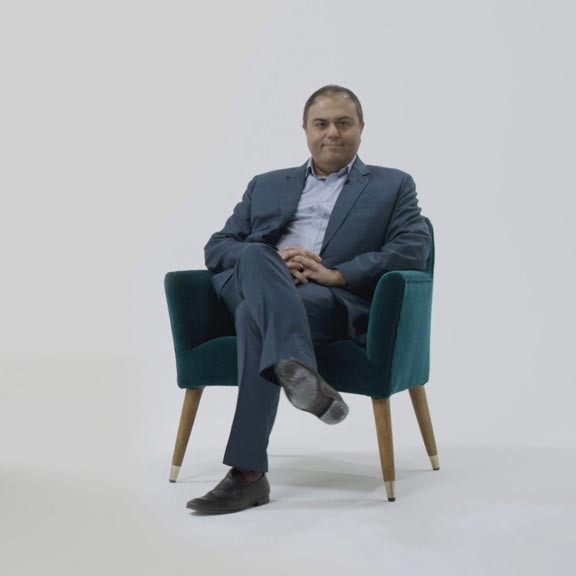Prostate surgery and laser prostate surgery at Spire Leicester Hospital
Treatment to reduce an enlarged prostate that is causing problems.
At Spire Leicester Hospital, our highly skilled surgeons offer prostate surgery to relieve symptoms associated with an enlarged prostate.
Prostate enlargement, or benign prostatic hyperplasia (BPH), can be treated by removing or destroying part of the prostate tissue that’s pressing on your bladder or urethra.
Sometimes also called
- Transurethral prostatic resection
- TURP procedure or TURP surgery
- Transurethral resection of the prostate (TURP)
- Laser prostate surgery (HoLEP or GreenLight)
- UroLift®
- Aquablation® therapy
The procedure(s) listed above are examples only and may not be available at all Spire hospitals.
At a glance
-
Typical hospital stay
1-3 nights -
Procedure duration
45-90 minutes -
Type of anaesthetic
General, spinal, epidural or local -
Available to self-pay?
Yes -
Covered by health insurance?
Yes
Why Spire?
- Fast access to a wide range of treatments
- Consultants who are experts in their field
- Clear, inclusive pricing
- Rated 'Good' by the Care Quality Commission
Prostate surgery: what to expect at Spire Leicester Hospital
Spire Leicester Hospital is a long-established private hospital providing comprehensive treatments and care to our patients across the East Midlands and beyond.
Our expert consultants will provide you with a treatment and recovery plan that’s personalised to your needs. We offer fast access to diagnostic tests, scans and consultations, so you won’t have to wait long to find out if surgery is right for you. We’ll usually be able to book your surgery within a week of your referral or diagnosis by your consultant.
You can choose your consultant and can expect to receive high-quality care in our clean, modern facilities.
How much does Prostate surgery and laser prostate surgery cost at Spire Leicester Hospital
It’s a common operation to have done privately, and our inclusive prices and access to payment plans make it easy and more affordable if you don’t have medical insurance.
The price shown is the ‘from price’ (ie the minimum cost of the procedure). Please note that for some procedures the actual price you are quoted may vary significantly and can increase depending on your choice of Consultant (who is an independent practitioner and not an employee of Spire). The fees charged by Consultants and Anaesthetists are set independently and are outside the control of Spire. The price may also vary depending on the type of anaesthetic, implant or drug used, and your medical history.
Spire Leicester Hospital can provide you with a single, fixed price for your procedure so there are no surprises. Please read Spire Healthcare's terms and conditions for full details of what’s included and excluded in your fixed price when paying for yourself. Finance options are available through our partner Omni Capital Retail Finance Ltd, 10 Norwich Street, London, EC4A 1BD.
Procedures offered for prostate surgery at Spire Leicester Hospital
We offer a variety of treatments for prostate surgery. Treatment choices available to you will depend on your condition and your general health. Your consultant will discuss which treatment is best for you.
The type of anaesthetic you need varies depending on the procedure you need and your general health. It may be:
- A general anaesthetic meaning you’re asleep – this is most commonly used
- A spinal or epidural – where you can’t feel anything from the waist down
Transurethral resection of the prostate (TURP)
- A special instrument is passed through your urethra and a small, electrically-heated wire is used to trim small pieces of prostate tissue
- Performed under general anaesthetic
- You’ll need a urinary catheter for around one to three days after the operation
Laser prostate surgery
- A specialised tool is passed through your urethra and a laser (eg RevoLix Duo Holmium laser), which generates intense heat, is used to trim small pieces of prostate tissue
- Performed under general anaesthetic
- You usually need a urinary catheter for around one to three days after the operation, but it may be for a shorter time than with a TURP
Every treatment has its own benefits and risks which your consultant will explain to you during your consultation.
Find a consultant at Spire Leicester Hospital
Preparing for prostate surgery at Spire Leicester Hospital
Finding us
We're located 7 miles from junction 21 of the M1 and easily accessible from the A47 and A6. We’re a 15 minute cab ride from Leicester railway station. We have free parking for you and your visitors.
Your consultation
Your initial consultation will be in one of our private consultation rooms. During your appointment, your consultant will discuss:
- The symptoms you’re experiencing, such as weak urine flow or difficulty passing urine
- Your general health and medical history
- Whether you need to have further tests and scans to assess your condition
- The different treatment options available, including alternatives to surgery, and which option they recommend for you
Before proceeding with your treatment, you may need to have a pre-operative assessment with one of our specialist nurses. This is to check your overall health and fitness before having surgery.
Prostate surgery: your procedure
You’ll usually stay with us for one to two nights so you’ll be shown to your own en-suite room before your operation. All of our private rooms have:
- Nurse call system
- TV/Radio
- Telephone and WiFi
- En-suite bathroom
- Wardrobe space and a small locker
- Armchair
The procedure lasts for 60 to 90 minutes. If you’ve come with a friend or family member, they’re welcome to wait in your room while you have your operation.
You may need a urinary catheter after the operation. This is because your urethra may be swollen which can block urine from passing. It will be removed before you leave hospital.
Prostate surgery: your recovery
As expected after surgery, you’ll feel some pain afterwards. Our nurses will help you manage this by giving you painkillers and advice about what over-the-counter medicines you can take after you leave hospital.
Although the recovery time varies depending on the procedure you've had and your overall health, here’s a guide to recovery timeline for transurethral resection of the prostate (TURP) – the most common procedure:
Treatment and recovery timeline

1-3 days
Catheter is removed and you can leave hospital
1-3 weeks
Driving and gentle walking
3-4 weeks
Back to desk-based job and sex if you’re comfortable enough
4-8 weeks
Full recovery
-
1-3 days
Catheter is removed and you can leave hospital
-
1-3 weeks
Driving and gentle walking
-
3-4 weeks
Back to desk-based job and sex if you’re comfortable enough
-
4-8 weeks
Full recovery
The treatment described on this page may be adapted to meet your individual needs, so it's important to follow your healthcare professional's advice and raise any questions that you may have with them.
How to get to us
As well as being close to the city centre, we're just seven miles from junction 21 of the M1 and easily accessible from the A47 and A6.
We're less than an hour's drive from Nottingham East Midlands and Birmingham International airports.
We're three miles (or a 15 minute cab ride) from Leicester railway station.
Spire Leicester Hospital,
Gartree Road
Oadby
Leicester
LE2 2FF
Get in touch
Important information about COVID-19 tests
COVID-19 testing or antibody tests are not available as a standalone service at Spire Leicester Hospital.
Sources
Prostate Cancer UK TURP factsheet
http://www.baus.org.uk/_userfiles/pages/files/Patients/Leaflets/TURP%20for%20benign.pdf
https://www.nhs.uk/conditions/transurethral-resection-of-the-prostate-turp/
https://www.nice.org.uk/guidance/mtg23/chapter/1-Recommendations
https://patient.info/doctor/benign-prostatic-hyperplasia
https://www.baus.org.uk/_userfiles/pages/files/Patients/Leaflets/HoLEP.pdf



